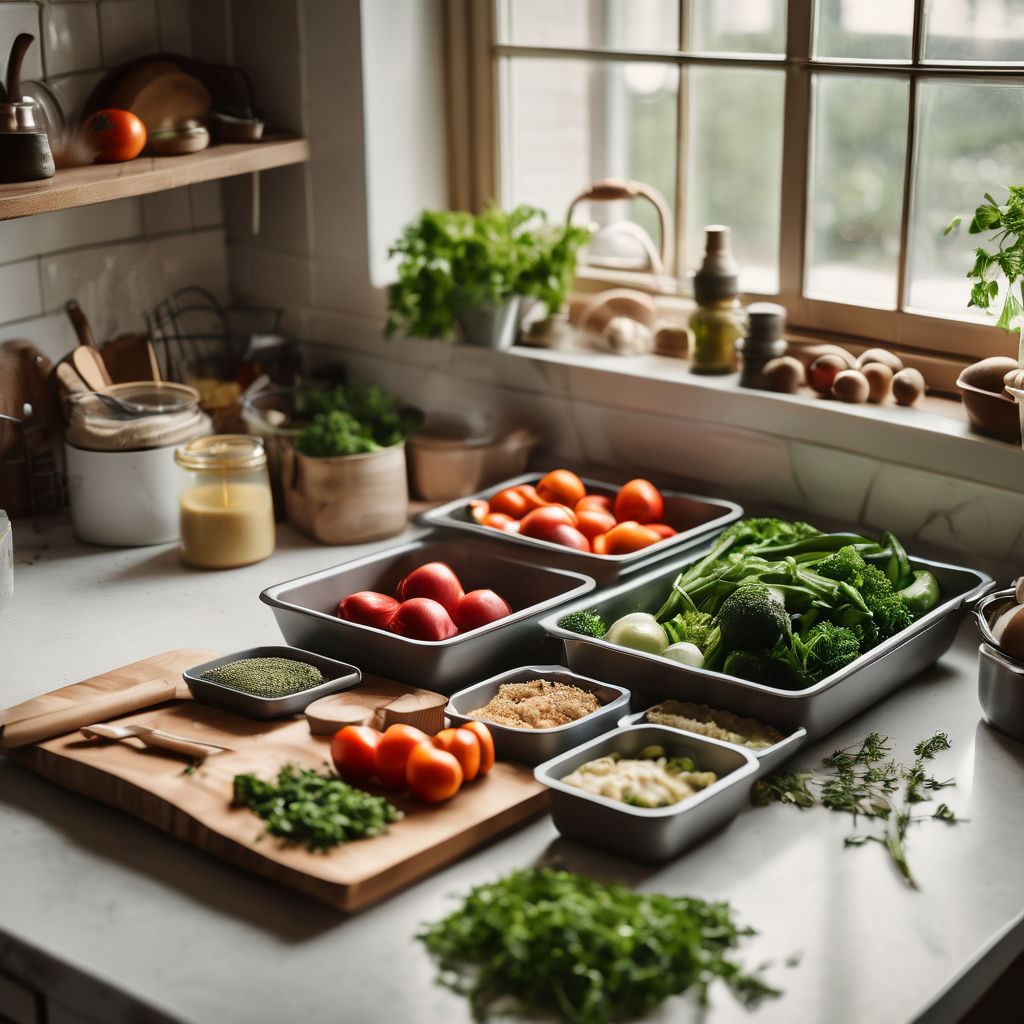
Transform Your Kitchen with AI: The Smart Way to Plan and Prep Meals for the Week
Weekly meal prep doesn't have to be a chore you dread on Sunday afternoons. Between deciding what to cook, checking your pantry, making shopping lists, and managing dietary preferences, the process can feel overwhelming. That's where AI-powered meal planning tools step in to handle the complexity, letting you focus on the enjoyable parts of cooking.
The Real Challenge of Weekly Meal Planning
Most home cooks struggle with the same pain points: decision fatigue over what to cook, food waste from ingredients gone bad, and the endless cycle of menu planning. Add dietary restrictions, family preferences, and budget constraints to the mix, and it becomes a juggling act. Traditional approaches—pen and paper, scattered recipe bookmarks, or generic meal plan templates—rarely account for what's already in your kitchen or adapt to your evolving tastes.
This is where intelligent meal planning changes everything. Rather than starting from scratch each week, you can work with a system that understands your kitchen, your preferences, and your schedule.
How AI Learns Your Cooking Style
Modern meal planning AI doesn't just suggest random recipes. It learns from your choices, dietary needs, and ingredient preferences over time. When you rate recipes you've tried or mark ingredients you dislike, the system adapts. This personalization means the meal plans you receive actually match what you'd genuinely want to cook, not generic suggestions that require significant modification.
Your AI assistant becomes familiar with which cuisines you enjoy, how much time you typically spend cooking, and whether you prefer simple weeknight dishes or more involved weekend projects. This contextual understanding makes every recommendation feel tailored rather than one-size-fits-all.
Turning Pantry Contents into Weekly Menus
One of the smartest features of AI-powered meal planning is the ability to work with what you already have. By tracking your pantry contents, these tools can generate recipes using ingredients you currently own, dramatically reducing waste and saving money.
Imagine scanning items in your fridge and freezer, then receiving a curated list of meals you can actually prepare this week. Rather than buying expensive ingredients for a specific recipe you found online, you're working backward from inventory to possibility. This approach transforms meal prep AI into both a financial and environmental win.
Building Shopping Lists That Actually Work
Once your meals are planned, a quality meal planning tool generates precise shopping lists organized by store sections. But smarter systems go further—they avoid duplicating items already in your pantry and group similar ingredients together, making your grocery trip faster and more efficient.
Some platforms even integrate pricing information, helping you spot sales on ingredients you need or suggest budget-friendly alternatives. This turns shopping list generation from a basic chore into strategic expense management.
Personalizing Around Dietary Goals
Whether you're tracking macronutrients, following a specific diet, managing allergies, or accommodating multiple family members' preferences, AI meal planning tools handle these complexities seamlessly. You set your nutritional targets or dietary parameters once, and every suggested recipe aligns with those goals automatically.
This personalization extends beyond nutrition too. If you want plant-based options one week, keto-friendly meals the next, or kid-friendly dinners that adults will enjoy, the system adapts instantly. No more searching through dozens of recipes to find ones that fit your criteria.
Saving Time Through Intelligent Automation
The cumulative time savings add up significantly. When you're not spending 30 minutes deciding what to cook, another 15 minutes cross-referencing recipes with your pantry, and another 20 minutes building a shopping list, you gain over an hour of reclaimed time per week. Multiply that across a year, and it's substantial.
But beyond pure time savings, AI meal planning reduces decision fatigue. When your cooking decisions are informed by your preferences and simplified through intelligent organization, the mental load of meal planning decreases considerably.
The Real-World Benefits
Busy professionals, parents juggling multiple schedules, and anyone who's ever stood in front of their open fridge wondering what to make recognize the immediate relief that comes from having meals already planned. You move through your week with clarity, your shopping list matches exactly what you need, and your ingredients have purpose rather than sitting unused until they spoil.
Moreover, when your meal plans genuinely reflect your tastes and dietary goals, you're more likely to actually follow through. There's no motivation deficit when you're excited about the meals you've planned.
Getting Started With Your Kitchen's New Assistant
The beauty of modern meal planning tools is that you don't need to master complex software. Most platforms are designed for intuitive use—answer a few questions about your preferences, import recipes you love, connect your pantry inventory, and let the intelligence work behind the scenes. Over time, as the system learns from your choices, the recommendations become increasingly accurate and personalized.
Start small by planning just a few meals, adding pantry items as you notice them, and gradually building your cooking profile. As you become comfortable with how the system works, you'll discover new ways to use it, from finding recipes for mystery ingredients to optimizing your shopping approach.
The future of home cooking isn't about following rigid meal plans or expensive meal delivery services. It's about having a knowledgeable cooking partner that understands your kitchen, respects your preferences, and transforms weekly meal prep from a stressful obligation into a manageable, even enjoyable process.